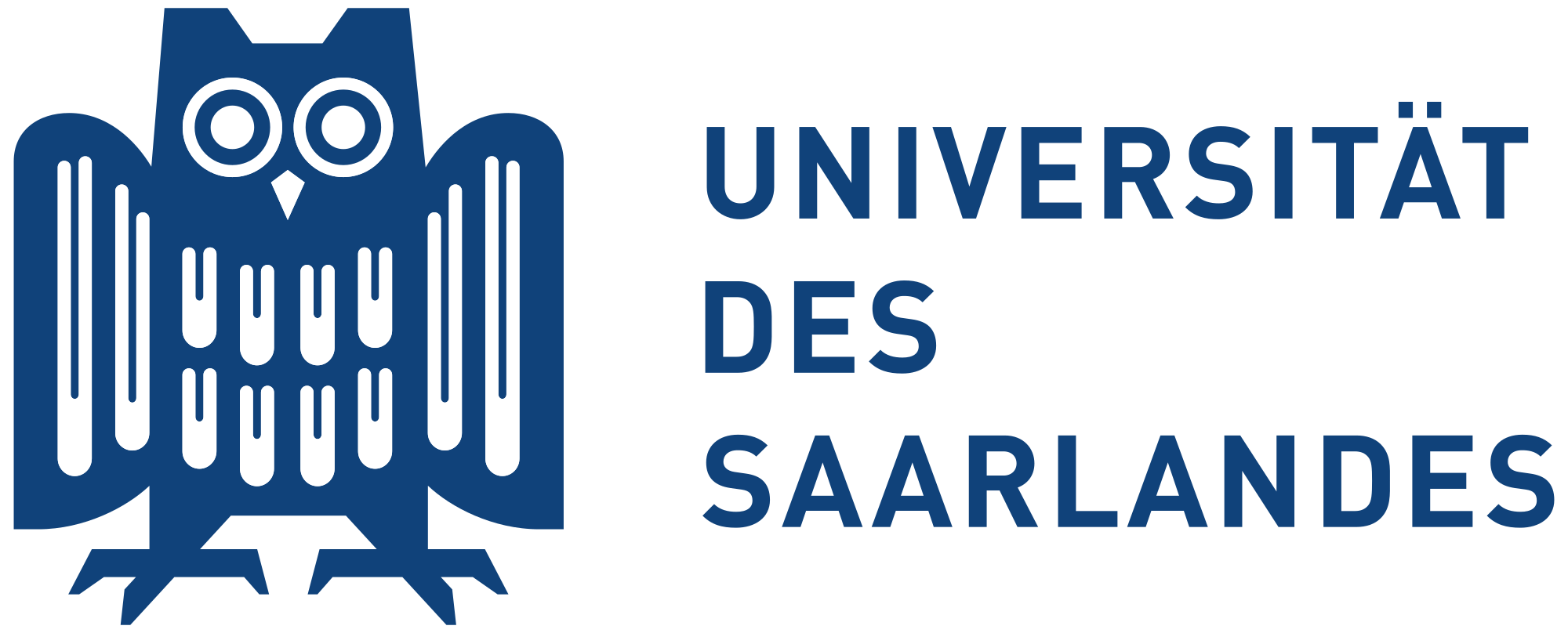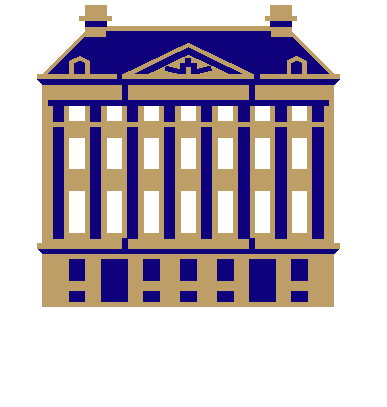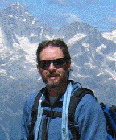Summer School
The International Summer School on Planning and Scheduling will be held in conjunction with ICAPS 2018. The summer school provides an educational program for graduate students and young researchers. The program will focus on a selection of topics that are relevant for both theory and practice, covering approaches and topics around a thread of planning under uncertainty: modeling, classic and sample-based planning algorithms (such as Monte Carlo Tree Search), reinforcement learning, model-based algorithms, and applications.
General information
Chairs: Alan Fern, Joerg Hoffmann, Michael Kaisers
Date: June 20 – 23, 2018
Location: Noordwijk, The Netherlands
Venue: De Baak Seaside
Accommodation: The summer school has reserved accommodation for participants, which can be booked as part of the registration process.
Accepted participants are invited to join the Facebook event!
Important dates
School Program and Speakers
The summer school will start around 9am on Wednesday 20 June, and lasts until around 5pm on Saturday 23 June. The program of the school is under construction, and further information will be posted here as it becomes available.
Confirmed lecturers at the school
- Iadine Chades: Iadine Chades is leading the “Conservation Decisions team” at CSIRO Australia. She specialises in developing algorithms that aim to answer complex ecological problems using Markov Decision processes. Because threatened species are low in numbers and difficult to detect, the decision problems she tackles have ‘small data’ and high uncertainty (observability and model). Iadine publishes in the field of conservation biology and AI.
- Zico Kolter: Zico Kolter is an Assistant Professor in the School of Computer Science at Carnegie Mellon University. His work focuses on machine learning and optimization, with a specific focus on applications in smart energy systems. He has worked on fast optimization algorithms for a number of problems and for general convex programs, large-scale probabilistic modeling, stochastic optimization, and deep learning.
- Malte Helmert: Malte Helmert is an Associate Professor of Computer Science at the University of Basel. His main research interests are in classical planning and heuristic search, with an emphasis on domain-independent algorithms for synthesizing distance heuristics in factored state spaces. His research group at the University of Basel leads the development of the Fast Downward planning system.
- Thomas Keller: Thomas Keller is a research associate at the AI group of the University of Basel. He received his PhD from the University of Freiburg (Germany) in July 2015. His main research interests are in probabilistic planning with a focus on Monte-Carlo Tree Search methods and Heuristic Search. Thomas received the ICAPS 2017 Best Dissertation Award and is the main developer of the Prost planning system that won IPPC 2011 and 2014.
- Mausam: Mausam is an Associate Professor of Computer Science department at IIT Delhi, and an affiliate faculty member at University of Washington, Seattle. His research explores several threads in artificial intelligence, including scaling probabilistic planning algorithms, large-scale information extraction over the Web, and enabling complex computation over crowdsourced platforms. He received his PhD from University of Washington in 2007 and a B.Tech. from IIT Delhi in 2001. He was recently awarded the AAAI Senior Member status for his long-term participation in AAAI and distinction in the field of artificial intelligence.
- Gabriele Röger: Gabriele Röger is a lecturer at the University of Basel. She received her doctoral degree (Dr. rer. nat) from the University of Freiburg (Germany) in June 2014. Her main research interests are in classical planning with a focus on heuristic search methods. Gabi received the ICAPS Best Dissertation Award in 2016 and was co-author of best papers or best student papers at AAAI (2008, 2015) and ICAPS (2014, 2017).
- Brian Williams: Brian Williams is a Professor of Aeronautics and Astronautics at the Massachusetts Institute of Technology, a Principal Investigator in the MIT Computer Science and Artificial Intelligence Laboratory, and an adjunct researcher at the Woods Hole Oceanographic Institute. His research focuses on online task and motion planning with bounded risk and human robot collaboration, applied to autonomous vehicles and robotic teams.
- and Scott Sanner: Scott Sanner is an Assistant Professor in Industrial Engineering and Cross-appointed in Computer Science, both at the University of Toronto. Scott’s research spans a broad range of topics from the data-driven fields of Machine Learning and Information Retrieval to the decision-driven fields of Artificial Intelligence and Operations Research. Scott has applied the analytic and algorithmic tools from these fields to diverse application areas such as recommender systems, interactive text visualization, and Smart Cities applications including transport optimization.
We expect to design a program around a central tread of planning under uncertainty, covering modeling languages, classic and sample-based planning algorithms (such as Monte Carlo Tree Search), reinforcement learning, model-based algorithms in general and heuristic search in particular, as well as several application areas. In difference to previous ICAPS Summer Schools, we plan for the proram to be accomanied by a thread of lab sessions, where school participants will gain practical hands-on experience in the topics covered.
|
Time |
Wednesday 20 |
Thursday 21 |
Friday 22 |
Saturday 23 |
|
Topic |
MDP models, simulator-based algorithms |
Reinforcement learning |
Model-based algorithms |
Applications |
|
8:45 |
Welcome / Introduction |
Coffee |
Coffee |
Coffee |
|
9:00 |
Lecture 1: |
Lecture 5: |
Lecture 9: |
Lecture 13: |
|
10:30 |
Coffee break |
Coffee break |
Coffee break |
Coffee break |
|
11:00 |
Lecture 2: |
Lecture 6: |
Lecture 10: |
Lecture 14: |
|
12:30 |
Lunch |
Lunch |
Lunch |
Lunch |
|
14:00 |
Lecture 3: |
Lecture 7: |
Lecture 11: |
Lecture 15: |
|
15:30 |
Coffee break |
Coffee break |
Coffee break |
Q&A Concluding Session |
|
16:00 |
Lab 1: |
Lab 2: |
Lab 3: |
End 16:30--17:00 (travel to Delft, ca. 20 min bus + 20 min train) |
Lecture 1 (Sanner): "Introduction to Planning under Uncertainty in MDPs"
Slides: PDF
This tutorial provides an introduction to planning under uncertainty based on the framework of Markov Decision Processes (MDPs). After motivating the basic MDP definition, the tutorial will cover a variety of fundamental solution methods that underlie techniques for planning under uncertainty explored in subsequent tutorials.
Lecture 2 (Keller): Introduction to simulation-based algorithms for planning under uncertainty.
Slides: PDF
We provide an introduction to solution methods for the Multi-Armed Bandit problem and discuss basic sampling algorithms like Hindsight Optimization and Sparse Sampling.
Lecture 3 (Keller): Introduction to Monte-Carlo Tree Search.
Slides: PDF
We approach the topic by introducing the more general Trial-based Heuristic Tree Search framework, and we discuss action selections ("tree policies"), backup functions, recommendation functions and heuristics ("default policies") that have been used successfully in practice.
Lecture 5 (Kolter): Introduction to RL
Slides: Slides
This lecture will introduce the main concepts of RL, including model-based, model-free (value-based and/ policy-based) RL methods. We will specifically highlight the class of temporal difference methods including the basic TD and Q learning algorithms.
Lecture 6 (Kolter): Recent advances in RL
This lecture will highlight some of the recent advances in RL methods at a high level, including Deep Q Networks for Atari game playing, recent advances in policy search, and the integration of modern model-based control methods such as LQR approaches.
Lecture 7 (Helmert & Röger): Classical Planning Algorithms
Slides: Part 1, Part 2, Part 3, Part 4
This tutorial provides an introduction to classical planning. We introduce the mathematical model based on factored state spaces and then describe the three main algorithmic approaches: heuristic search, SAT planning, and symbolic search.
Lecture 9 (Helmert & Röger): Classical Planning Heuristics
This tutorial provides an overview of heuristics for classical planning. We describe the five main concepts underlying heuristics: abstraction, delete relaxation, landmarks, critical paths and network flows. We then present an overview of combination methods and declarative heuristics based on linear programming.
Lecture 10 - 11 (Mausam): "Model-based Probabilistic Planning"
Slides: PDF
Lecture 13 (Sanner): "Sequential Optimization for Traffic Signal Control"
Slides: PDF, Video Stephen Smith's on Surtrac
Urban traffic congestion is a major source of environmental pollution and accounts for billions of dollars of lost productivity worldwide. In this tutorial I will present an overview of traffic flow modeling and novel signal control methods that involve elements of both planning and scheduling.
Lecture 14 (Chades): "Decision-making under uncertainty can help conserve biodiversity"
Slides: PDF
Lecture 15 (Williams): "Risk-bounded Task and Motion Planning in the Real World"
Slides: PDF
Robots need to know their limits lest they recklessly endanger themselves and others. In this tutorial we present paradigms for designing task and motion planners that bound risk of failure, while spending acceptable risk to its greatest effect. Applications range from an autonomous car that maneuvers around reckless drivers to exploration of a deep-sea volcano.
Application procedure
Applicants must submit the following documents, merged into one PDF and in this order:
- completed ICAPS Summer School application form
- a letter describing how the applicant's research topic is connected to the school. This can be light-weight. The purpose of the letter is for the school chairs to be able to confirm, at a high level, that the school content is in principle suited to your background and research.
- CV
- a recommendation letter from the applicant's research advisor(s), required only if the applicant is applying for a grant - see below. This is a light-weight letter, that should merely say a few words (< 1/2 page) regarding the student's status, promise, and benefits from the school. It can be either attached or emailed directly to the contact email below.
Applications are submitted through EasyChair (upload the PDF application as a paper with title 'application
The deadline for applications is March 23, 2018.
You can contact icaps-2018-summer-school-AT-googlegroups.com in case of questions.
Registration fee and grants
The registration fee is 300 EUR. It covers admission to all school lectures, coffee breaks, and lunch. Accommodation expenses are not included in this fee.
A number of grants will be offered for supporting travel, registration and accommodation. Request for such financial support should be indicated on the application form (see above). Decisions about allocation and size of the grants will be announced on May 11, 2018. Registration fee payment will be due at the registration deadline on May 18, 2018.
Travel directions
Arrival: The closest airport is Amsterdam Airport Schiphol (AMS).
Public transport: The trip from Amsterdam's airport Schiphol to the venue in Noordwijk takes around 1 hour by train and bus, and costs around 10 Euros. A number of connections is available, most typically taking a train for 16 minutes from Schiphol to Leiden, and a Bus for ca. 30 minutes from Leiden to Noordwijk, stop "Pickeplein". The train and bus infrastructure in the Netherlands is extensive, reliable, and easy to plan for using the links below, or Google Maps.
Taxi or cab services: There is a number of companies servicing the airport or available to be called at the hotel reception. Uber is operating in Amsterdam and around the airport; however, their service outside these areas is not always available. Fares from Schiphol to Noordwijk may range from 45 - 90 Euro, or 20-45 Euro from Leiden to Noordwijk.
Connection to ICAPS: The trip to Delft takes just over one hour by public transport, e.g. taking a bus to Leiden (30 min.) and a train from Leiden to Delft (20 min.), and is available every 30 minutes until the late evening.
Links:
- 9292.nl for trips that combine bus and train rides
- ns.nl for national train journey information and fares
- nsinternational.nl for international train trips

 Download image
Download image 












